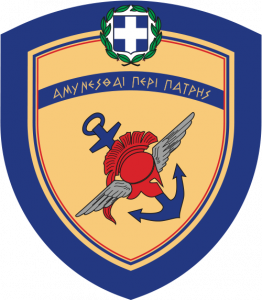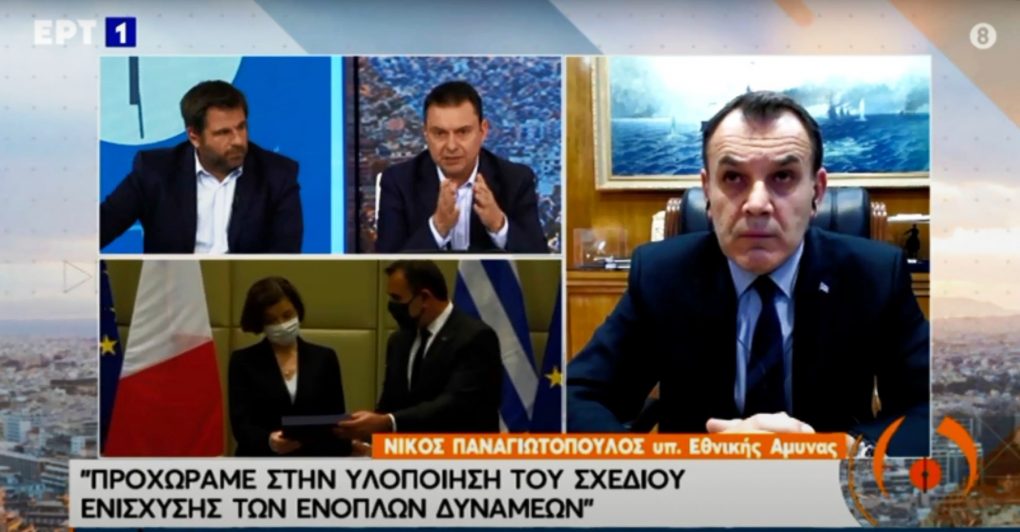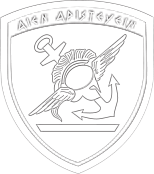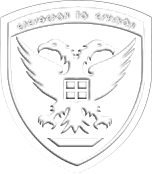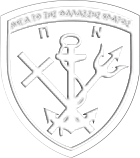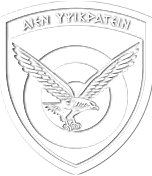GIANNIS PITTARAS: Let’s start with the good news, at least the way we see it; the parade for March 25th will take place as usual, and it will be attended by distinguished guests, provided that they respond positively to the invitations extended to them.
NIKOLAOS PANAGIOTOPOULOS: It is true. It couldn’t be done differently this year, since, as you know, we are celebrating 200 years since the beginning of the 1821 Revolution. It is an exceptional year, suitable for glorious celebrations.
It is only natural that the toper of this year will be the 25th March parade. The Government wishes to organize a glorious parade, appropriate to the occasion, inviting foreign leaders who will represent the countries that contributed to Greece’s Liberation and the fortunate outcome of the 1821 Struggle, such as Russia, England and France. Therefore, these leaders have been invited and we are waiting for their response.
The Armed Forces are inevitably involved in such an event, as the parade is a military one. Various ideas have been put forth, even though, as you can understand, the situation is rather unpredictable, due to the Covid-19. Performing the parade at Syntagma Square was approved, and I think that this was the right thing to do.
GIANNIS PITTARAS: We will see footage with troops?
NIKOLAOS PANAGIOTOPOULOS: Of course we will, at least they have been planned. I cannot say yet how will the parade take place, however our goal is to have a glorious military parade, as befits the occasion, with all the invitees etc.
I suppose that the concept is to have a parade with people attending, yet we can’t predict how will the situation be, due to the Covid-19; all planning is relative, I hope that the circumstances will allow for what we have planned and wished.
DIMITRIS KOTTARIDIS: Let’s refer to the armaments now and the issue that interested us recently. The issue of the frigates has been discussed; it was brought on the table by your French counterpart, when she visited; we also have the Mirage which, from what I understand, will be updated?
NIKOLAOS PANAGIOTOPOULOS: All these issues are based on a very specific plan, where the needs are ranked, prioritized and adapted to the country’s financial capabilities, so as to cover the needs of all three branches of the Armed Forces. We should not focus on one procurement only; this is not an issue of one or two procurements. In parallel with the new purchases, we need to ensure the upgrade, support and modernization of the existing systems.
This is what we are trying to do, on the basis of an organised plan. Much work has been done by the three General Staffs – the Army, the Navy and the Air Force –, coordinated by the Chief/HNDGS, who discussed with us, so that this plan would be drawn up and presented to the Prime Minister.
The Prime Minister right away grasped the need to better equip the Armed Forces, so as to cover the lost time. He allowed the increase of Defence allocations and expenditures; it is a very important step. It was voted in the Budget discussed in December, and now we proceed to the implementation of this plan, in difficult times.
Let me remind you that, in 2020, we faced multiple crises; besides the pandemic we also tackled tension with our neighbour. Essentially, since March, the entire Armed Forces were at a state of alertness, which peaked with the overall mobilization in the summer and fall, when the entire Fleet was developed in the Aegean Sea and the East Mediterranean. It wasn’t easy, yet we had to do that too. The effort is already paying.
GIANNIS PITTARAS: Let’s go back for a minute, to the conversations you had with the French and your counterpart, regarding the Rafale. I guess that we shall now enter the materialization stage, which means that at some point the first batch will arrive in Greece and co-training will begin?
NIKOLAOS PANAGIOTOPOULOS: Look, the conversations began in September. Everything went on fast forward, as this was the way it should be done; we had no room for delays. We worked intensively, the French side also helped a lot and, this way, certain some ones could realise that Greece and France have an active strategic relation; otherwise, we wouldn’t have been able to complete the negotiations, nor would the Parliament be able to vote for, sign and, now at the final stage, materialise the contracts, so fast.
The French have helped. They answered the questions, and resolved individual matters, particularly regarding the acquirement of used aircraft. The negotiations on the good condition of these aircraft were not simple, yet the French really helped a lot. We have worked on that and reached a successful conclusion.
Now, we proceed to the next stage: The training of Greek pilots and technicians, that is those who will fly and those who will support the Rafale, shall begin. Our goal is to start receiving the aircraft one at a time, starting in July, so that by the end of the year, we will have received the first six. Afterwards, we will receive six more next year, and the remaining six (so as to reach eighteen), the year after that. In parallel, the next pilots and technicians will be trained, first in France and then in Greece. There is a lot of personnel and time involved, yet we have already reached the stage of implementation.
Naturally, the Rafale will swiftly, dramatically and radically increase our overall air power. They are aircraft of very advanced technology, with electronic systems and weapons that make a difference to the air power balance between Greece and Turkey; everyone is aware of that.
The agreement we have reached is inclusive, as it comprises the purchase of the aircraft, as well as the FOS support, both in technical issues and in weaponry. Therefore, this was exactly what our Air Force and our Armed Forces needed. In addition, we now have an unhindered flow of spare parts for the Mirage 2000-5 that can be added to the Air Force availability, contrary to their prior immobilization, due to lack of spare parts.
DIMITRIS KOTTARIDIS: How many are we talking about? How many are the Mirage?
NIKOLAOS PANAGIOTOPOULOS: Our goal is to reach a full squadron of 24 fully operational, functional and available aircraft. We had significantly less, as no support contract had been signed since 2012; a new one was ensured last year and is now being materialized. In this way, more aircraft are available in the Air Force.
The upgrade programme for eighty four F-16 Viper, a more modern version, is also materialized in parallel. In my estimation, this programme will enter its critical phase this year. In a few days, the prototype, the first Viper will fly to the US, so as to undergo some technical interventions; afterwards, we shall enter the production phase for eight to twelve aircraft per year. I would say that this is a decisive stage, as we enter the key “Viper upgrade” issue.
In a few days, the Greek and the Israeli side will start negotiations on transforming the Air Cadets’ Training Base in Kalamata, to a modern International Training Centre, which will entirely respond to the Cadets’ needs for training at the aviation science, but also be able to attract pilots from other countries as well. They will be trained at the Base of Kalamata, thus making it an international training centre; this fact will also have a positive impact on the economy (and I don’t only mean the local economy). Consequently, much progress takes place at the Air Force.
We also take action for the other Branches as well. The next big decision, the one we shall be engaged in, in the first four months of 2021, is the acquirement of four frigates and the upgrade of four MEKO. It is an aspiring project…
GIANNIS PITTARAS: Where will these frigates be from?
NIKOLAOS PANAGIOTOPOULOS: Currently we are at an assessment phase, so I cannot tell you yet.
GIANNIS PITTARAS: The French Minister asserted her eagerness to participate…
NIKOLAOS PANAGIOTOPOULOS: We have a very agreeable problem. A different problem than the ones we faced the previous years. We have many interesting proposals to choose from, if I may say.
Several interesting proposals have been presented; some are not complete yet, yet are soon expected, from countries who wish to undertake this programme on behalf of Greece. We have specific requirements, though; we want to make sure, besides buying four frigates, that some of them will be constructed in Greece. This is very important. Greek Shipyards will be operating, hence the local defence industry. Until their construction – as this is a long-term programme, the frigates will not come in a year, like the Rafale – we also ask for some warships which are ready, and they will be an “interim solution”, until the construction of the frigates.
This whole “package” will undergo a meticulous assessment from Navy personnel, who will suggest the best proposal. We should move fast, precious time was lost. The Navy needs to be reinforced with new main assault units. It has proved its worth and combat capability this summer in the Aegean Sea and the East Mediterranean, however this does not mean that it should not be reinforced with new vessels.
DIMITRIS KOTTARIDIS: Minister, you have obviously undertaken the country’s protection against possible issues, and I mainly refer to the Aegean. In parallel, an effort is being made for the de-escalation of the crisis and the tension, which has started at diplomatic level.
As you were present at the last meeting between Mr. Mitsotakis and Mr. Erdogan in London, in the margins of the NATO summit (that was over a year ago, and it was the two men’s last meeting). Do you believe that there is a chance for a solution to be found at the Greek-Turkish issues, or at least for a gradual de-escalation which will last for long and bring calm in the Aegean Sea?
NIKOLAOS PANAGIOTOPOULOS: We should be optimistic and arrive at the discussions with a good will. However, arriving at discussions does not mean that we are ready to cede any sovereign rights. Of course not! Besides, these first exploratory talks, or “consultations”, as named by the Turkish minister of Foreign Affairs yesterday, have an exploratory quality.
Each side is trying to realise what is discussed by the other side. Turkey may have a different view on this; ok, let’s put it on the table and see. It does not mean that we meet in order to reach a conclusion in the same afternoon. We are well aware that this is not going to be easy, yet we proceed with a good will, and cautious optimism. We are not naïve. What I say is that the other side needs to come with a good will as well, which they don’t when, even at the time both sides reach the table of negotiations, some Turkish officer refers to “casus belli” once again. These are things that need to be concretely proved. Other than that, we shall proceed to the talks.
Getting to discuss is not a bad thing, we need to keep an open channel for contacts at various levels, and then we shall see. Naturally, the diplomatic effort being made goes hand in hand with our effort to reinforce deterrence. These two are interconnected.
In the last year, the diplomatic effort was intensified; it did not only stay at bilateral level now that the talks will begin. I believe that the Greek side has taken many steps towards communicating our national positions to our Allies and partners in Europe, NATO and the broader region, and it has done it very successfully.
GIANNIS PITTARAS: It was not self-evident that the Europeans would be on our side. In many cases, they had to be convinced!
NIKOLAOS PANAGIOTOPOULOS: It is finally been understood by the Europeans – and not only them – that this is not a bilateral Greek-Turkish issue; it is rather a broader issue that relates to the security and stability in the East Mediterranean, which have been directly threatened by Turkey with provocative behaviour, and aggressive rhetoric and activity. I repeat that it has finally been understood, not only by the Europeans and NATO, but also from other countries in the broader area, who share our concerns, Israel, Egypt and Arab nations.
Consequently, Greece has done what it should at diplomatic level, even at the level of Defence Diplomacy. Last week, I held teleconferences with the Ministers of Defence of Great Britain, France and Germany, following – if I may – the Prime Minister and the Minister of Foreign Affairs in their diplomatic effort. At our level, we are having our meetings as well.
Nonetheless, the element of deterrence is also present, and currently an extended and organized effort is taking place, so as to reinforce the deterrent footprint, by enhancing the Armed Forces.
DIMITRIS KOTTARIDIS: Will you have a telephone call with Akar?
NIKOLAOS PANAGIOTOPOULOS: It is very possible! The NATO interministerial will soon take place in Brussels, with physical presence. I have sent my message to all directions, including the European partners who have assumed mediating roles, that I would not mind meeting my counterpart.
The issue is not whether we shall meet or not. The issue is that we need to reach a common ground, in goof faith and in a good spirit, recognizing that there are differences. As I have said before, possibly meeting with my Turkish counterpart tomorrow does not mean that we are going to discuss what we could give him. Far from that!
Our positions are very clear, and our spirit – as we come to this negotiation – is very specific. I listen to it all the time: “sitting on the table equals eagerness to cede”. On the contrary! We need to be very clear on that.
GIANNIS PITTARAS: Since the exploratory talks have started, and the meeting has been renewed for next month; byt the end of February, or early March, the two sides will meet, in Athens this time.
The setting for these meetings is very different this time; is there, in a manner of speaking, some sort of “moratorium in the Aegean”, since the Turks no longer engage areas as often, saying that they will perform exercises, research or drillings. The setting is very different now. It is important, if currently there is a moratorium…
NIKOLAOS PANAGIOTOPOULOS: First of all, we should distinguish the various activities. Turkey issuing a NAVTEX for exercises – this is common practice, we do it too – is different from a NAVTEX for research that will be made by the “Oruc Reis” or something like that. These two are not the same.
Seeing two countries engaging sea areas by NAVTEX, so that they will do their exercises, is normal. How frequently they issue them, or the width of the areas engaged might mean something, yet the existence of NAVTEX from both sides is not considered “aggressive behaviour” from either side. This is how things were, this is how things will always be.
Therefore, we have a good spirit, we are optimistic, however we are not naively having a positive predisposition; we will go and see what would the best outcome be, without ceding our sovereign rights.
DIMITRIS KOTTARIDIS: In the context of reinforcing the Army, you referred to an increase of the service time, and some plan for the permanent personnel, if I am not mistaken…
NIKOLAOS PANAGIOTOPOULOS: Our effort to reinforce the Armed Forces is extended to all three Branches, the Navy, the Air Force and the Army. It is just that currently, the most impressive projects relate to the acquirement of new aircraft and vessels, yet more interventions relating to the personnel will take place.
We have announced an increase of the Service time by three months, with some augmentations when we are talking about the borderline, or rear Units, so as to achieve a higher percentage of staffing at borderline units.
The key intervention concerning the personnel, which will also invigorate the quality of the personnel, is the planned hiring. The intervention began with the prospect to increase the cadets in the Officers and NCOs Military Academies. They will be the personnel who will staff the new systems, and by that I mean the pilots of the new aircraft, the captains and the technicians of the new vessels. Naturally, they will graduate from Military Academies.
Moreover, professional conscripts will be also hired, to reinforce the Special Forces in particular, which is par excellence the professional part of the Greek Army, and also to lower the existing average age. All these are necessary, so as to ensure better combat capability.
So, in a five-year perspective, fifteen thousand personnel will reinforce the Armed Forces. They are the future cadets, Officers and NCOs, from the Military Academies, and also the Professional Conscripts and Short Term Re-enlisting Privates. The recruitment notices will be issued next month, so as to begin the procedure since, even if we have the best aircraft or vessels, we also need to staff them with capable, trained and competent personnel.
GIANNIS PITTARAS: Is the Armed Forces personnel being vaccinated?
NIKOLAOS PANAGIOTOPOULOS: Of course it is. The General Staffs, coordinated by the HNDGS, have assumed the planning. The prioritization is performed by them and we proceed to the vaccinations, just like the rest of the population. The good thing is that the situation in the Armed Forces, coronavirus-wise, is under control. The cases are reduced in the Armed Forces, yet we follow the pace we see in the general population.
DIMITRIS KOTTARIDIS-GIANNIS PITTARAS: Thank you very much mister Minister.
NIKOLAOS PANAGIOTOPOULOS: Thank you for having me here.
